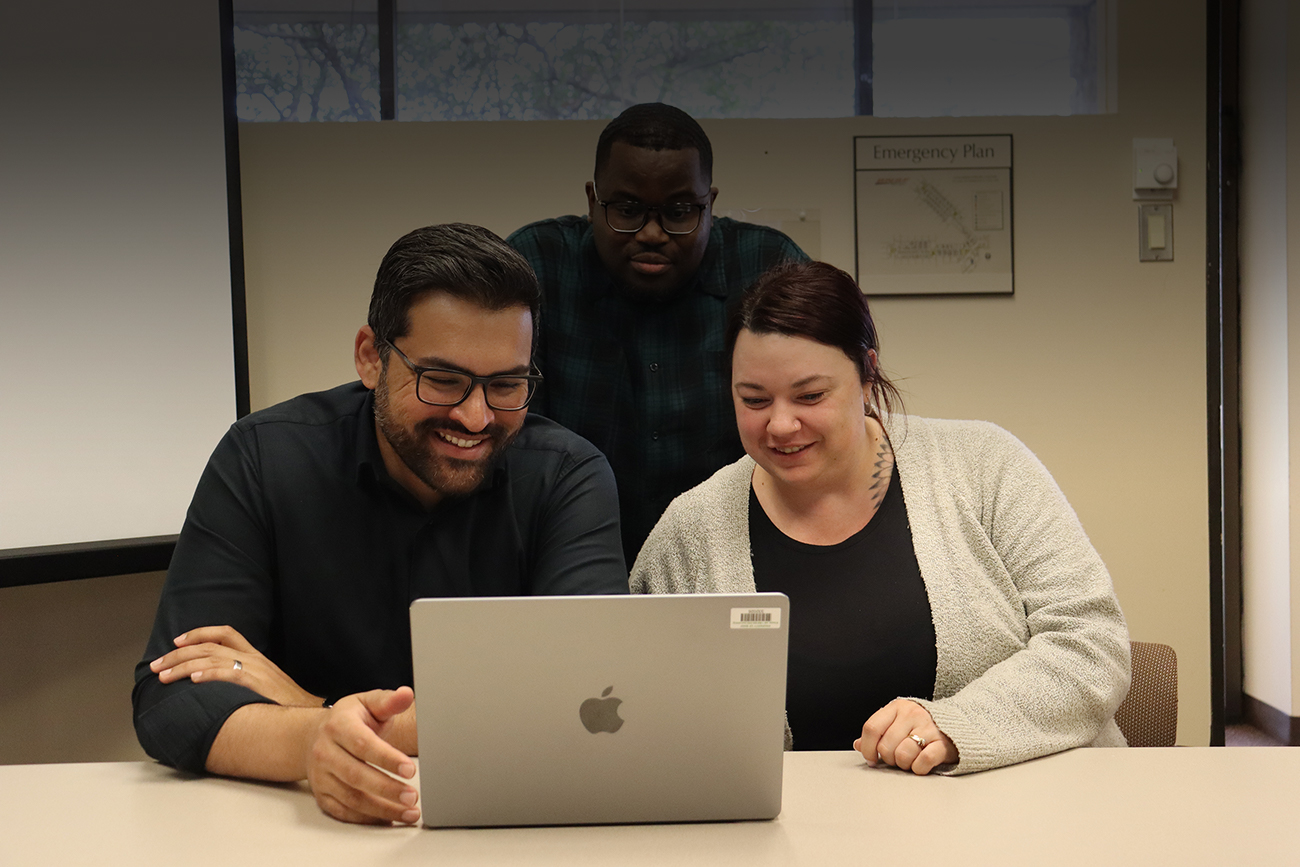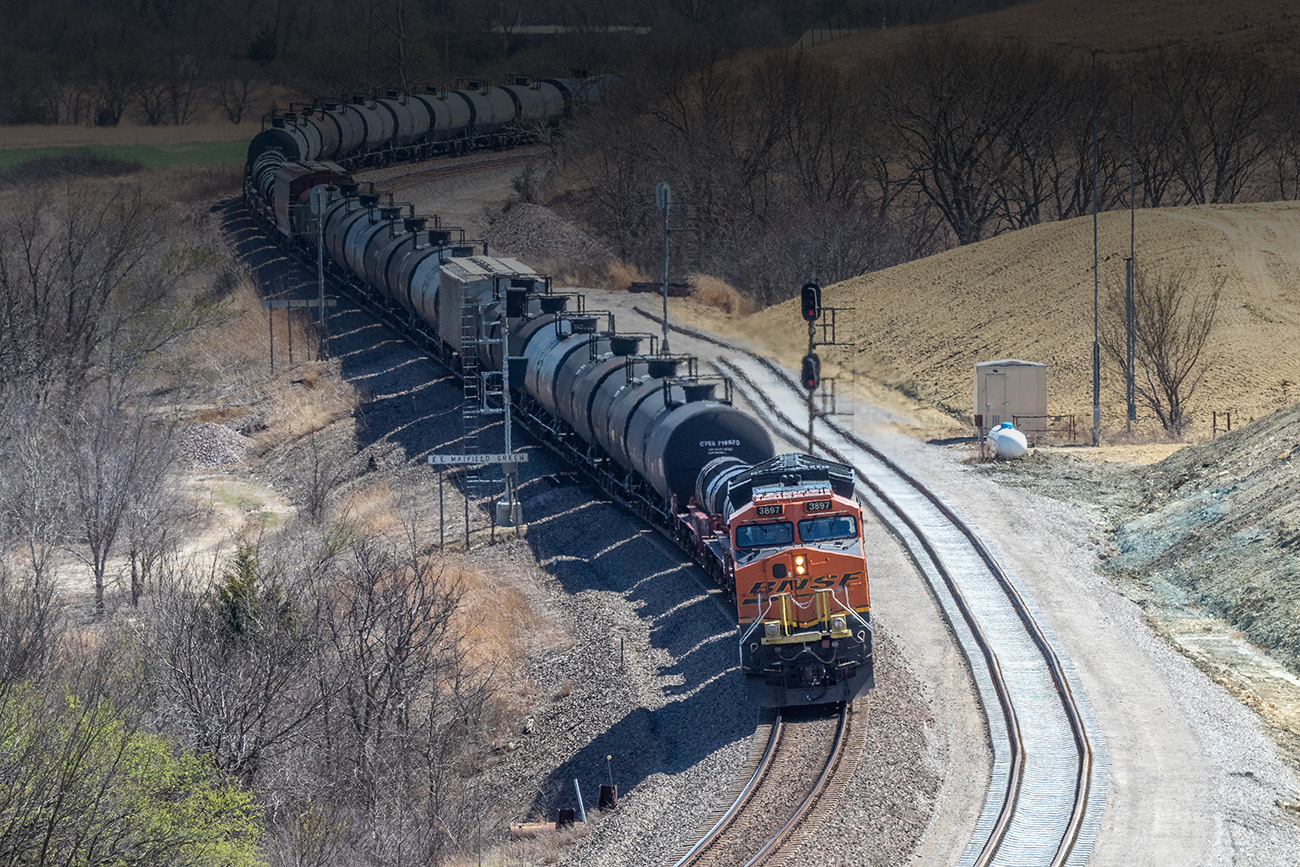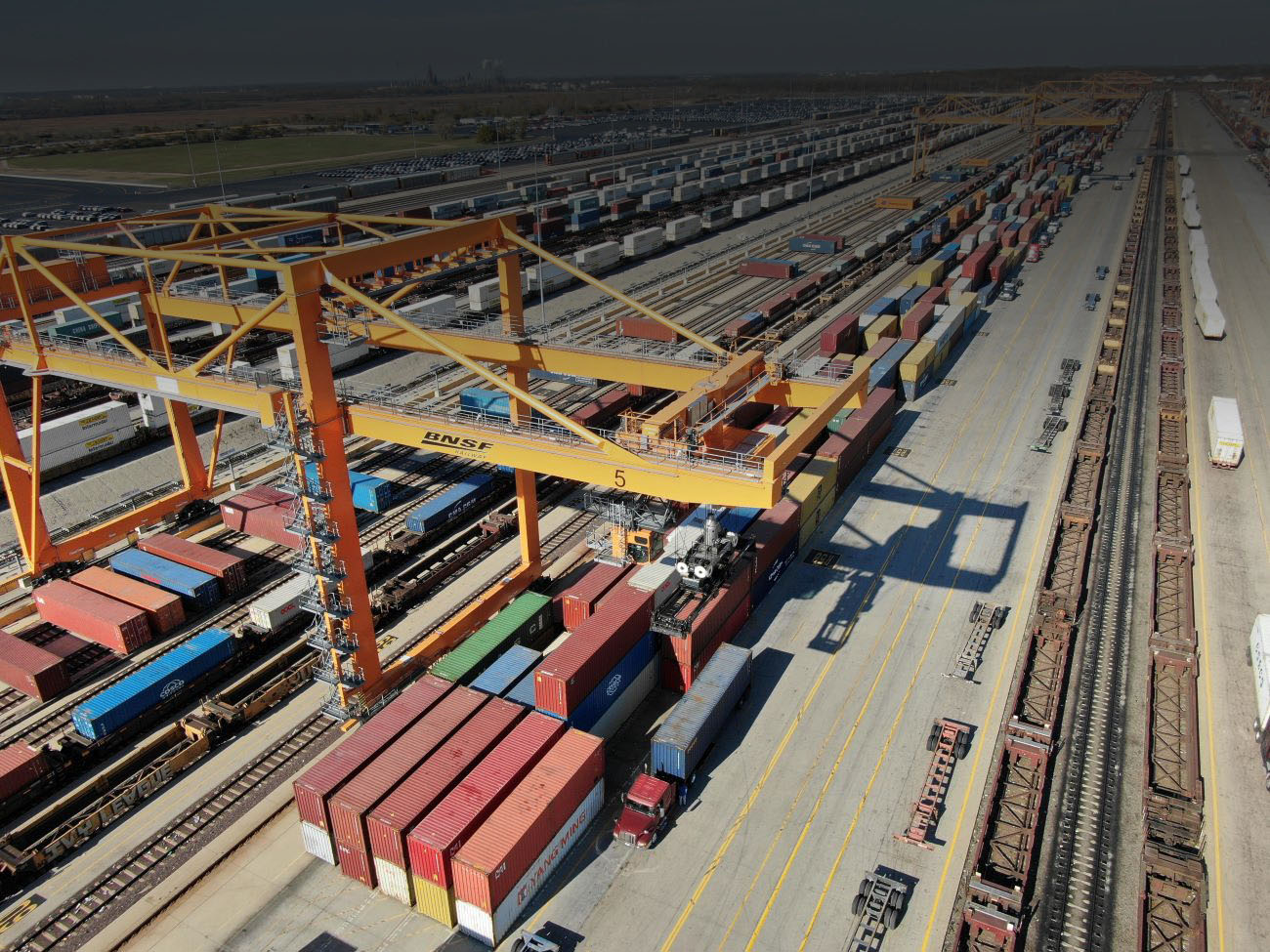Navajo Nation’s plight leads to water-by-rail solution
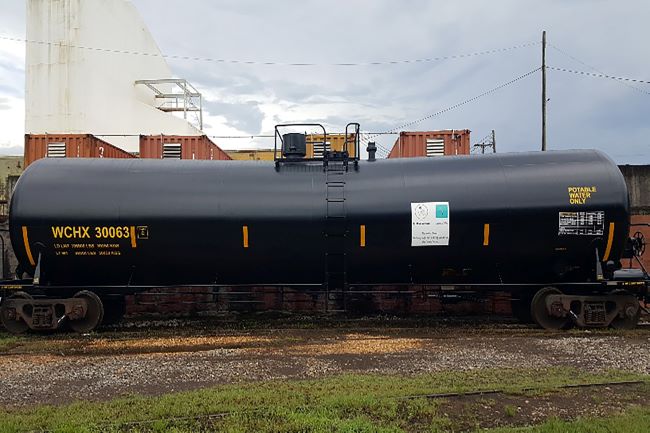
By SUSAN GREEN
Staff Writer
In the arid high desert of New Mexico, water is an increasingly rare commodity, especially in the eastern Navajo Nation, where many homes on the reservation have no running water. A pipeline is prohibitively expensive, and the main water sources are nearby wells that have already been tapped or contaminated. Recent drilling for new wells proved costly and futile.
“The first place the water engineer experts suggested, they drilled more than 2,500 feet, trying to tap into an aquifer. An adjacent site was tested, drilling nearly 4,000 feet,” Chris Halter, director of St. Bonaventure Indian Mission and School, explained. “There was no water.”
St. Bonaventure, located in Thoreau, New Mexico, has served the Navajo people for almost 50 years, providing education for youth as well as water delivery and other services. When the well the mission was using needed restoration, it would have to be offline for a few months. Another option for bringing potable water was urgently needed.
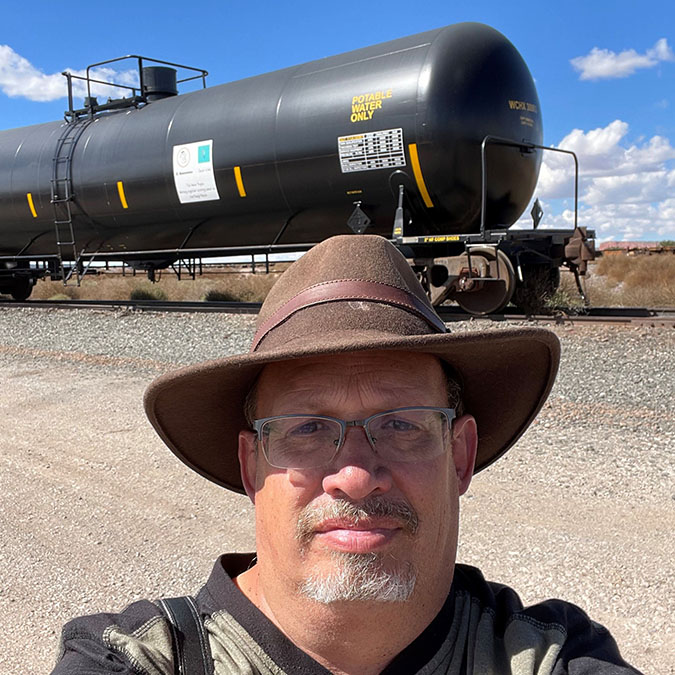
Enter Drew Halter, Chris’ brother. Drew saw firsthand how the reservation relies on the mission’s water-delivery program, which uses a small fleet of water trucks to serve 250 families. About 40 percent of those households rely on the hauled water for their daily drinking, cooking, bathing and cleaning needs.
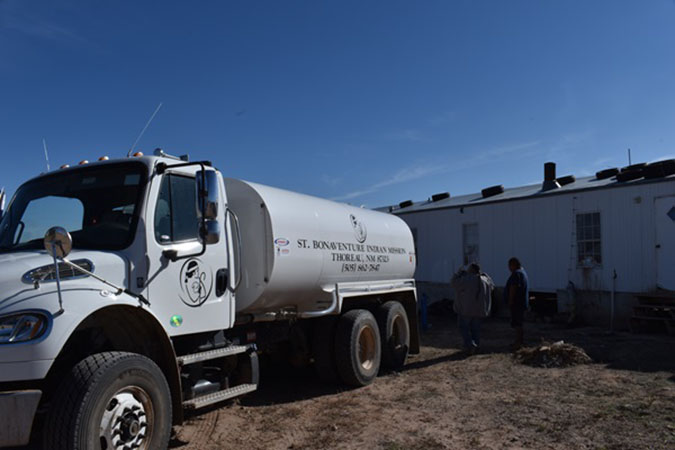
“I live in the East, where we don’t even think about taking a long shower because water is so abundant,” Drew said. “The average U.S. household uses about 110 gallons of water a day. The mission has been providing about eight gallons a day per person.”
Drew also has railroad experience, including freight car maintenance and operations. “I know that rail is more economical than other modes, so I suggested to Chris that we move water by train.” Chris didn’t need much convincing, given the urgency.
“I started making calls as we needed a source for water and tank cars to move them,” Drew explained. “I know some car owners and we found some food-grade tank cars that the mission could lease.” They started out with five cars. Thus began what is now a business for which Drew serves as president: Jacob’s Well, named for a sacred site in the Bible. He hopes to turn it into a nonprofit.
As the reservation’s well repair got underway in 2022, the brothers learned from trial and error that tank cars would need to be lined, otherwise the water can get rusty.
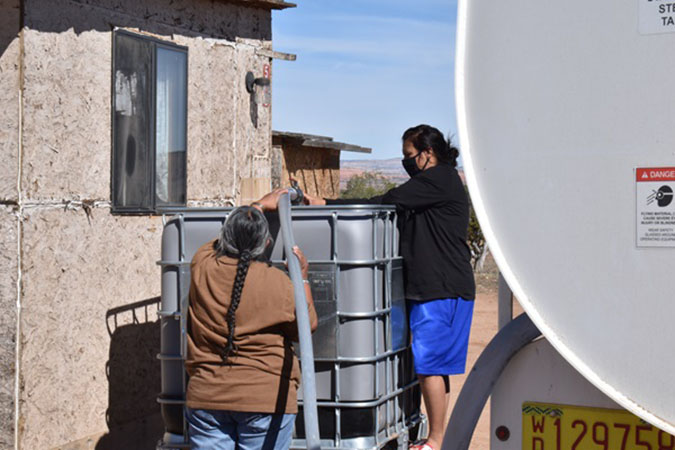
The source for the water is in Helena, Mississippi, where it’s treated and tested. Once the lined tank cars are loaded with 21,000 gallons of precious water, they are moved west to Amory, Mississippi, where BNSF picks them up and takes them approximately 1,200 miles to a spur at Thoreau. Families can either come to the mission to collect water or the mission trucks it for home delivery.
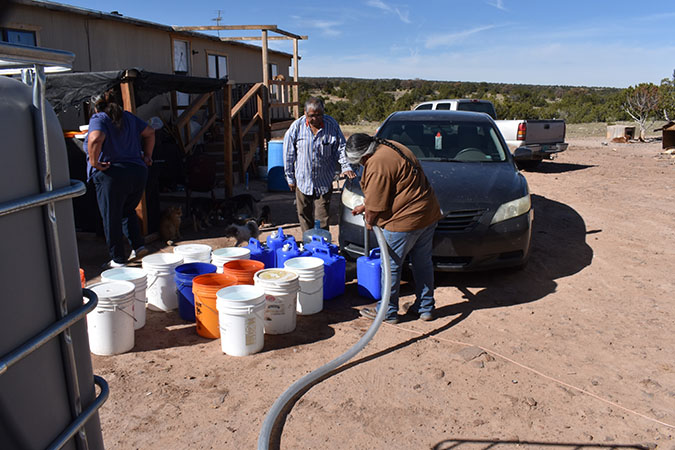
“Historically, potable water by rail hasn’t been economically feasible,” said Manager of Business Development Eunice Sun for BNSF’s Emerging Rail Markets. “But thanks to the collaborative efforts of a number of folks, including Sam Vidrine (Industrial Products Business Development), Peiter Hjertstedt and Mike Northam (both Regional Economic Development), Mississippi Export Railroad and our best-in-class operating team, we’re able to help Drew fulfill his vision to alleviate the water crisis. We’re thrilled to be involved with something so important and look forward to growing with Jacob’s Well and St. Bonaventure.”
In 2022, the first year BNSF began the long-haul moves, there were 10 carloads. In 2023, there were 28. “Drew has been able to more than double his volume, and we’ve been so impressed by his drive and experience,” Sun added.
Currently Jacob’s Well is an American Red Cross provider and has access to 14 tank cars. Drew hopes to eventually serve more of the reservation, which is bigger than Rhode Island.
“Currently the mission only serves a small portion of the reservation,” he said. “But the water crisis is very real and a result of a devastating drought in the West. Getting water where it’s needed is very serious business, and with our ‘mobile pipeline,’ we can help fill the gap.”
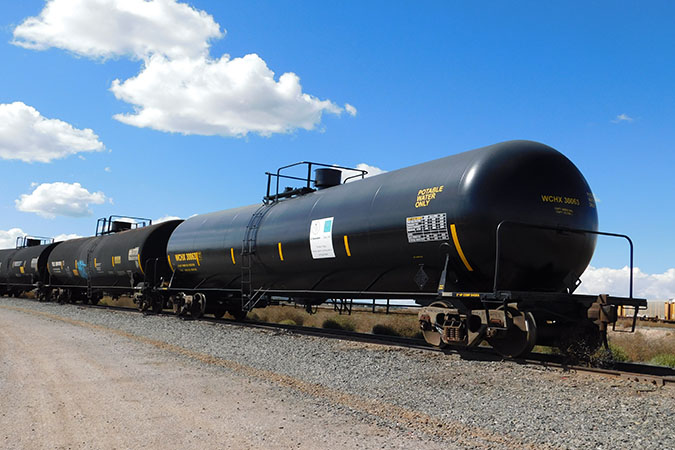
In addition to serving the reservation, Jacob’s Well may soon be assisting ranchers as well as supporting the Federal Emergency Management Agency (FEMA).
“Right now, we can move about 200,000 gallons a month, but the goal is to eventually ship one million gallons monthly,” Drew said.
The costs for the mission’s water and transport are paid for by donations.
“Water is a basic right for all people and without it, they can’t survive,” added Chris. “Getting water by rail was an answer to a short-term problem during the well’s outage. But it’s turned out to be a longer-term solution.”
